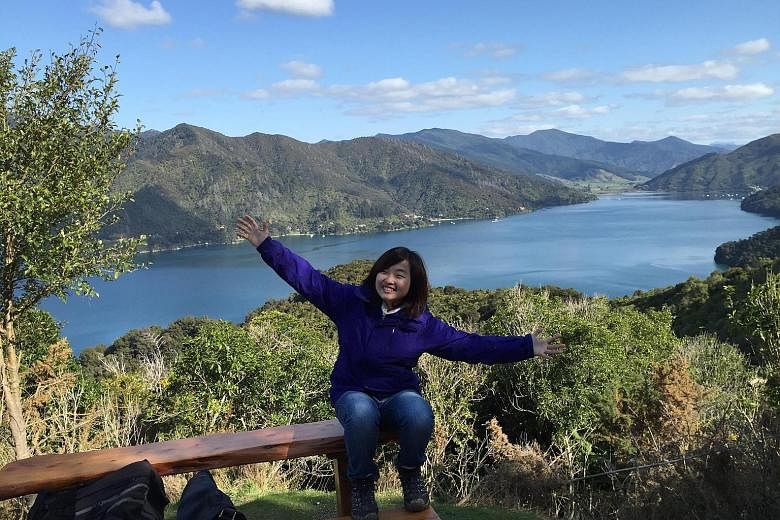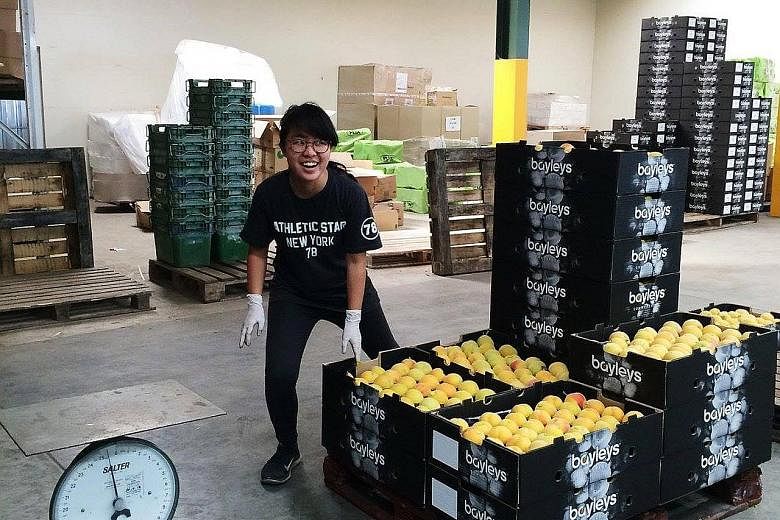While her friends were busy hunting for jobs after graduating from university last year, 24-year-old Laurentia Yong spent six months travelling through New Zealand's staggering landscapes in between jobs at a cafe, hostel, vineyard and cake factory.
The hotel administration graduate from the University of Nevada, Las Vegas, was on a working holiday scheme, which allows her to do short-term work while she travels.
While undergraduates or young graduates from universities in countries such as Switzerland, France and Japan can take up working holiday passes in Singapore under the Work Holiday Programme (WHP), the only reciprocal working holiday arrangement for Singaporeans currently is a partnership with New Zealand that started in 1999.
However, this will change with a new agreement inked between Australia and Singapore earlier this month. The Work and Holiday Maker Programme will allow 500 young people on each side to go on working holiday programmes for up to 12 months, though full details have yet to be released.
When asked, the Ministry of Manpower said the WHP, which offers 2,000 places at any one time, is a separate scheme "meant to profile Singapore as a global city", while the reciprocal arrangements are to promote people-to-people ties.
There are currently 200 places for Singaporeans in New Zealand. Those aged 18 to 30 can apply, and can work and travel there for six months though they cannot take up permanent employment.
STA Travel, an agent for the New Zealand programme, said that demand increased "quite significantly" last year.
It usually books 20 to 25 per cent of the places. While there used to be remaining spaces after applications open in November, all its slots were taken up by end-February this time.
Ms Jo'di Koh, 23, who started her working holiday in New Zealand last November, said the unpredictable nature of the programme sets it apart from university work-study exchange programmes.
Most travellers rely on websites and word-of-mouth recommendations to find work at short notice. Hitchhiking and camping at national parks are par for the course.
"School programmes tend to keep you in a safe bubble but one of the main things that I've learnt here is how to be independent. You have to deal with everything, from food to thinking about where to sleep and how to manage your finances and find jobs," she said.
Through her jobs, which included helping out at a lodge in Milford Sound on New Zealand's South Island and packing peaches in Hawke's Bay on North Island, she learnt more about differences in working attitudes across cultures.
"Singaporeans tend to be very task-oriented and you want everything done fast. But Kiwis are detail-oriented and more hospitable," she said.
Private tutor Pang Ye Xiong, 29, said he was drawn to the New Zealand programme for a taste of life outside Singapore.
"I loved New Zealand and I got to understand its culture better than the average tourist. But it also made me appreciate Singapore more, such as the food, sunny weather, and the convenience that comes with being a small country," said Mr Pang, who left for New Zealand last year and will return next month.
Ms Yong, who has since secured a job as a management trainee in the hospitality industry here, said taking on various odd jobs allowed her to see dignity in all types of labour.
"The people that I worked alongside do not judge you based on the kind of job that you have. On the other hand, if you're in Singapore and someone says that they work in a food processing plant, for example, you might not think so highly of the person."
The break also made her resume stand out to employers.
"All my interviewers asked me how I managed to leave the country, travel and work on my own at such a young age."
She added that "you need to be bold to dare to venture out on your own without knowing anyone, and without having a concrete plan".



